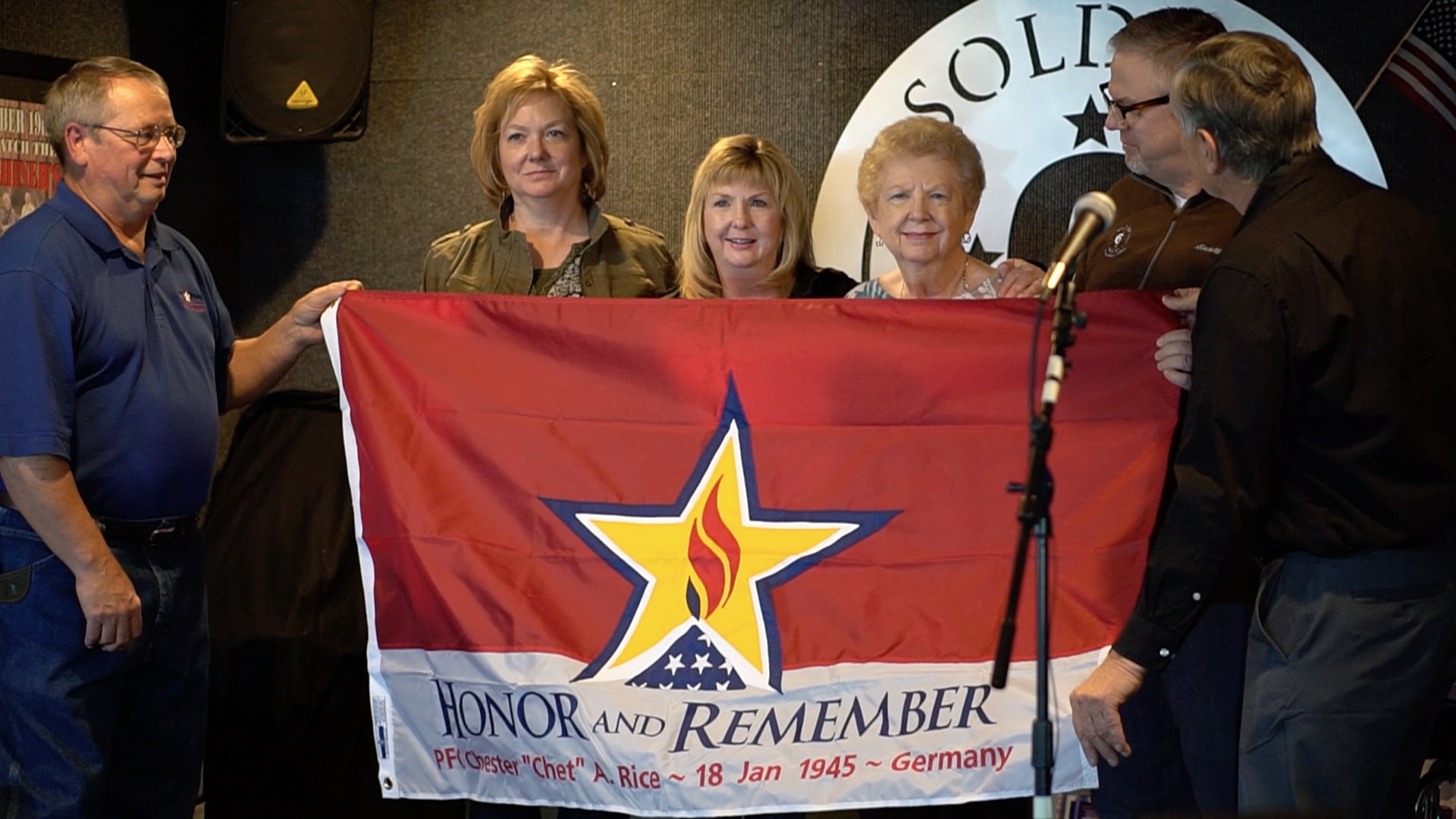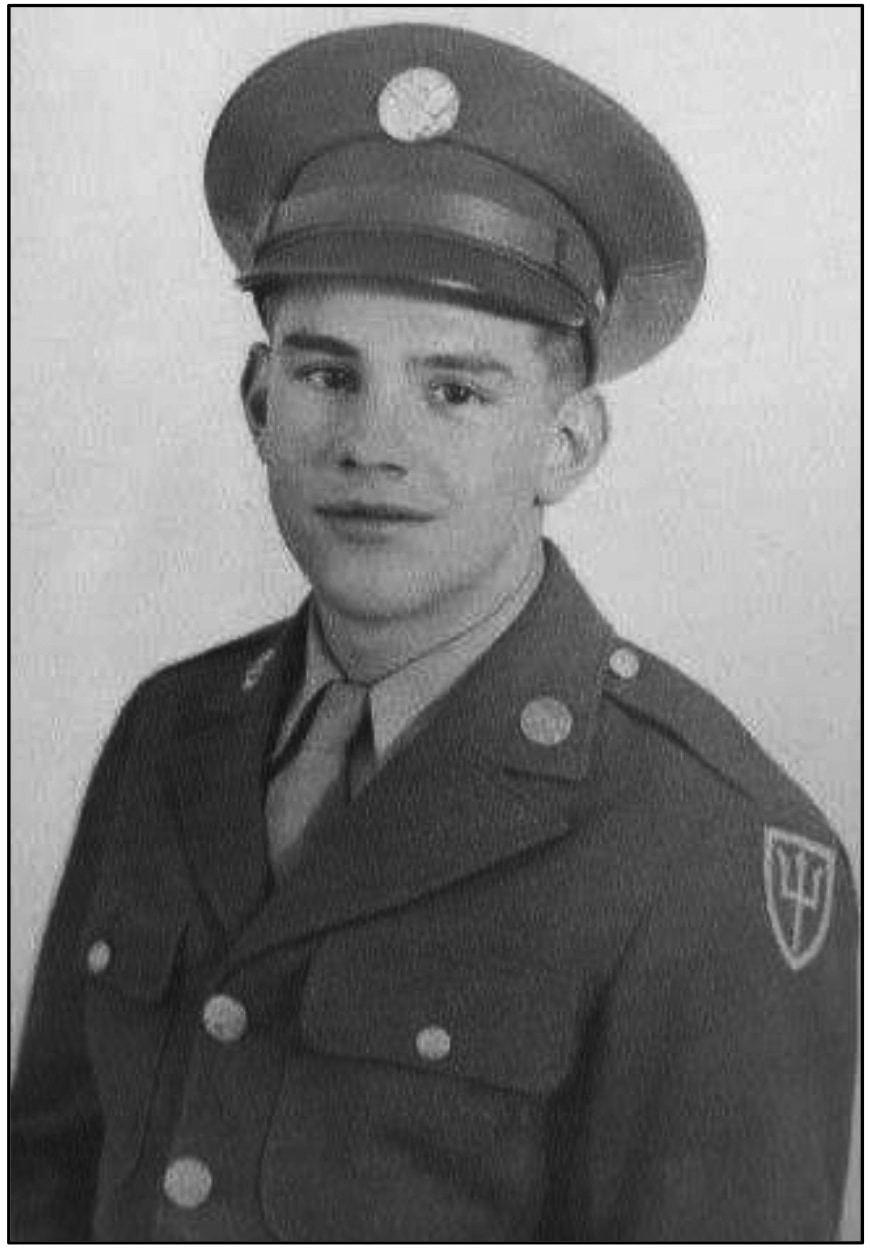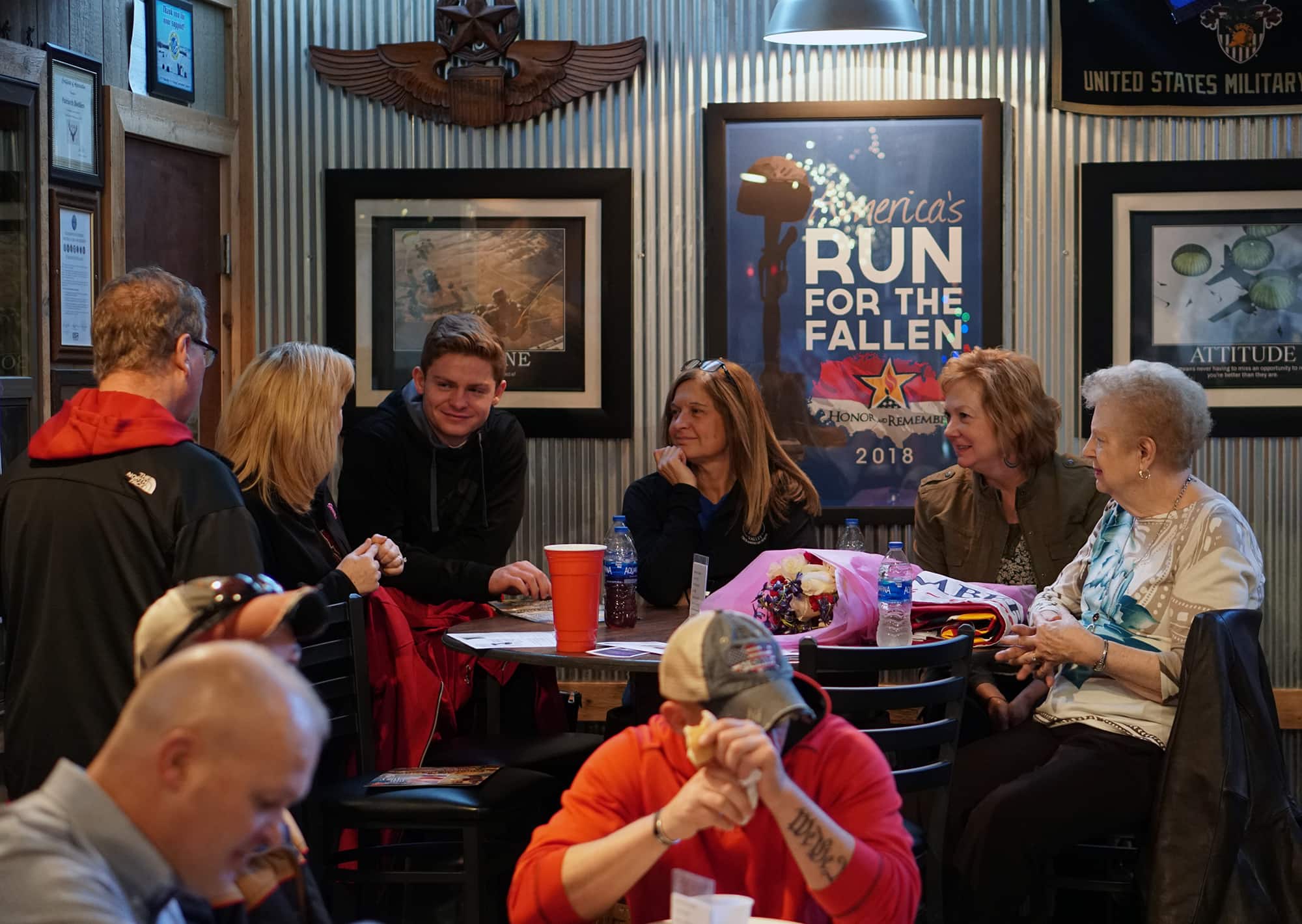

Pfc. Chester “Chet” Rice was born in South Omaha on 22 October 1924. He was the second child of Chester and Eva Rice and the only son.
His older sister Barbara was his best friend and they spent a lot of time together growing up. Much to the dismay of Eva, Barbara was quite the tomboy so you can imagine that they probably enjoyed a rough and tumble childhood.
Chet’s father was a whittler and carver and often took Chet’s foraging for likely looking pieces of wood down in the “hollows” of South Omaha.
Chet was in school in South Dakota when he joined he the Army in 1944 and was assigned as a medic to the 319th Infantry-80th Division and was in Europe for three weeks when he was shot and killed by a German sharpshooter, ironically while attending to a German soldier that had been wounded. Since little is known about Chet’s service as a medic and the exact location of his death, we would like to share with you a passage from a book titled “Fours Hours of Fury” by James M. Fenelon. This is the story of World War II’s largest airborne invasion across the Rhine River into the heart of Nazi Germany.
“53 gliders going into LZ N carried medical teams and equipment. Despite bullets chewing up dirt all around them, the medics went to work almost immediately. Jeeps fanned out to collect casualties and bring them back to surgical teams erecting the division aid station.
As the casualties arrived, medics divided them up by severity. In a process referred to as triage, the wounded were segregated into priority cases-with the more serious treated first. Those expected to die were made comfortable rather than operated on.
It was a difficult decision, but the medical teams had to focus on saving those they could rather than try to perform miracles while others bled out. Evacuation to rear-area hospitals wasn’t expected for at least twenty to forty-eight hours, and the field teams stabilized their patients as best they could until such time as evacuation was feasible.

Many troopers would later accuse the Germans of intentionally targeting the medics, who had red crosses over large white circles painted on their helmets. Glider pilot Robert Straub later reported that “four medics in my glider were shot thru the head by deliberately aimed fire.” Medic Joe Leonardo had been machine gunned in half. “His lower extremities were missing,” recalled one of his buddies.
Sgt. Paul Totten dashed out into the open fields multiple times to rescue the wounded. His actions attracted the attention of a determined German rifleman who singled him out. As Totten dragged a wounded trooper to cover, the rifleman shot him once and his patient twice. Totten managed to get them both to safety, where he treated the wounded man first-saving his life-then patched himself up before running back out to recover more casualties.
One ingenious medic had had enough: at pistol point he ordered a POW to sit on the hood of his jeep while he drove across the LZ collecting the wounded. He made several trips in this fashion, avoiding enemy fire each time.
The medical teams paid a heavy price for their bravery. Sixteen medics were killed and thirty-nine wounded. In spite of their condition, more than a dozen of the wounded medics refused to leave their station, continuing to attend casualties as they were brought in.”
Pfc. Rice’s father was notified of his death at work, the Armour Packing Co. in South Omaha. He then walked home and sat on the porch and cried for the loss of his only son, all the while dreading the task of telling his wife, Chet’s mom.
Chet’s brother- in- law, Mrs. Hadden’s father was serving in the Army in the South Pacific when he received three letters in one day. The first was that he had become the proud father of a baby boy, the second was his brother- in- law Chet was KIA’d in Belgium, and the third was that his mother was killed by a drunk driver in a car accident while she was on her way to offer comfort to the family of Pfc. Chester Rice.Consequently he never wrote nor would accept any more letters in his lifetime.
Pfc. Chester Rice was killed in action on 18 January 1945 and his remains were repatriated back to the United States approximately one year after his death. He was not even 20 years old when he made the ultimate sacrifice for our Freedoms.

Honor and Remember Nebraska Chapter is pleased to present this flag sponsored by Patriarch Distillers to the family of Pfc. Chester A. Rice.
Flag #196
